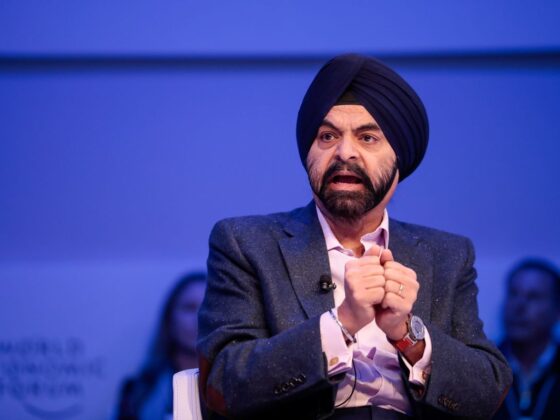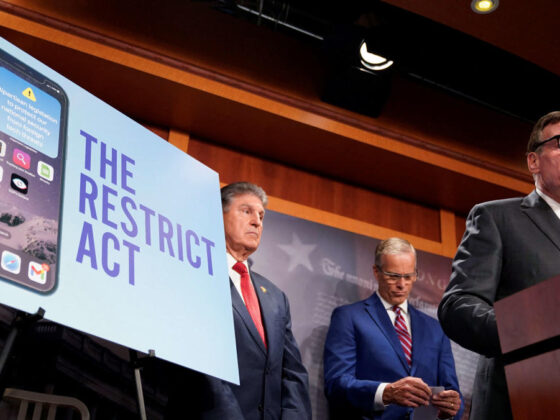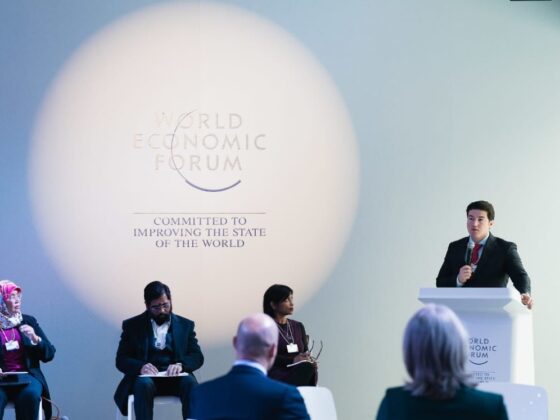Everything is explained in the UBER files. Sometimes you speed read a BBC article that you see on Twitter and don’t make much of it but then something in it stands out. This was exactly what I thought when I read about the Uber Files and how a $90m-a-year lobbying and public relations effort recruited friendly politicians to help in its campaign to disrupt Europe’s taxi business. A massive leak has revealed how top politicians secretly helped Uber. The Uber investigation isn’t what you think it is, it’s not just about a taxi service.
You are about to read what the MSM won’t tell you. It’s just a case of joining the dots and being a critical thinker rather than a conspiracy theorist. Let’s crack on. The Uber Files were obtained by the Guardian newspaper and shared with the International Consortium of Investigative Journalists (ICIJ) and other media partners, such as The Irish Times. The cache includes emails, text messages and other documents from 2013 to 2017. This is when Uber was barging into cities in defiance of local laws and regulations. This included dodging taxes and seeking to grind into submission the taxi industry, most prominently, but also trade union activists. I hopped across to the Guardian to see what they had to say in their article.
“Uber broke laws, duped police and secretly lobbied governments, leak reveals”
Here are the two paragraphs in the article that grabbed my attention.
When the then US vice-president, Joe Biden, a supporter of Uber at the time, was late to a meeting with the company at the World Economic Forum at Davos, Kalanick texted a colleague: “I’ve had my people let him know that every minute late he is, is one less minute he will have with me.”
After meeting Kalanick, Biden appears to have amended his prepared speech at Davos to refer to a CEO whose company would give millions of workers “freedom to work as many hours as they wish, manage their own lives as they wish”.
Whenever the WEF is mentioned you can be pretty damn sure that something nefarious is at work. I hopped across to Irish Times and it got even more interesting. The WEF was mentioned again. How Uber lobbied the world’s political elite to try and get its way.
“Records shows that Uber executives met France’s Macron, then Israeli prime minister Benjamin Netanyahu, then Irish taoiseach Enda Kenny and then Estonia president Toomas Hendrik Ilves, among other world leaders. In 2016, then US vice-president Joe Biden sought a meeting with Kalanick at the World Economic Forum in Davos, Switzerland.”
Macron, Netanyahu, Enda Kenny, Toomas Ilves and Biden are all at the WEF.
The files also reveal how Uber’s relationship with one of Europe’s top officials, European Commission vice-president Neelie Kroes, began significantly earlier and ran deeper than previously was known, putting her in an apparent breach of rules governing commissioners’ conduct. Neelie Kroes has served on the Salesforce Board (WEF) since May 2016 and was a member of the Global Policy Advisory Board of Uber Technologies, Inc. Therein lies the clue, the Global Policy Advisory Board. Kroes is also at WEF. So, no conflict of interest there then.
UBER are a WEF partner. Ex-CEO Kalanick is a member as is present CEO Dara Khosrowshahi.

There was a huge push and continues to be a huge push to get UBER into every city and country globally. The company has experienced phenomenal growth since its inception. UBER is also funded by Blackrock, Google, Bezos, Gates and other WEF partners.
The WEF politicians also support them (as we have seen). The goal of the WEF is to destroy private car ownership and small taxi businesses. They tried to do this by buying the market fraudulently. But how else would the World Economic Forum try to achieve this?
Enter “The Shared Economy.” What exactly is the sharing economy? According to Google it is:
In capitalism, the sharing economy is a socio-economic system built around the sharing of resources. It often involves a way of purchasing goods and services that differs from the traditional business model of companies hiring employees to produce products to sell to consumers. It includes the shared creation, production, distribution, trade and consumption of goods and services by different people and organisations.
In 2015 Larry Fink (WEF) who runs Blackrock and who invested in UBER wrote an article called “Here’s how the sharing economy is reshaping spending” He says (and this is significant)
“With the advent of technologies like Uber and Airbnb, these long-accepted financial decisions may start to change. Why bother with the big upfront investment, the hassles of maintenance and parking, or the liability of owning a car, if you can have one available within minutes with one tap of your phone.”
“As more and more people use sharing services for transportation, for example, personal vehicles will become less important, both financially and in terms of status. People may decide—and I think this would be the right decision for many —to take the cash they would spend on a vehicle and direct it instead towards smart investments.”
“Think about the scale of this change—Uber was founded just five years ago. In another five years, car-sharing technologies could be replacing car ownership at a meaningful scale. That has significant implications for the global economy, simply by changing the way capital flows through it.”
It would seem pretty obvious what the end goal is here. He spells it out in no uncertain terms when he says “car-sharing technologies could replace car ownership” and even “driverless cars”. The WEF backed this up when 2 years later in 2017 an article appeared on the WEF site called What exactly is the sharing economy? UBER gets a notable mention.
Meat will be a special treat. Read more: https://t.co/RiQP6tpkfp pic.twitter.com/7BcRHgnWTx
— World Economic Forum (@wef) April 9, 2018
The sharing economy that the WEF seem to be pushing is very much a case of “You Will Own Nothing And You Will Be Happy” In a 2016 article The Journalist Resource asked the very pertinent question:
“One central area of argument relates to whether the sharing economy is simply bringing more wage-earning opportunities to more people, or whether its net effect is the displacement of traditionally secure jobs and the creation of a land of part-time, low-paid work.”
The WEF would definitely fall into the camp of “the displacement of traditionally secure jobs and the creation of a land of part-time, low-paid work.” Schwab of the WEF and UN General Secretary Antonio Guterres also recently signed an agreement to accelerate Agenda 2030. Part of how they want to implement this is through a concept called the “sharing economy” in which people own less and less property. Predatory private equity firms buying up neighborhoods only to rent homes at a premium hint at the real meaning of the WEF’s “sharing economy.” This includes cars as well. Ida Auken, Former Environment Minister, Denmark and a Young Global Leader explains how social credit scores will play a vital role in the Sharing Economy. It encourages people to behave.
This is what she said in 2016:
“It made no sense for us to own cars anymore, because we could call a driverless vehicle or a flying car for longer journeys within minutes. We started transporting ourselves in a much more organized and coordinated way when public transport became easier, quicker and more convenient than the car.”
The real WEF agenda is spelt out in a little watched WEF video from 2018 which has only been viewed 65,000 times. It is 6 minutes long but essential viewing. It’s called What’s Next for the Sharing Economy?

They reference that cars are only used 5% of the time, 95% of the time they are idle and also that they take up valuable car space in cities. Carlo Ratti in the video says cities like New York, London, Paris, Singapore would be able to run on a fraction of the cars. He also says “Data is the glue behind the sharing economy” Guess who they reference as the country who has got the sharing economy right? Yep, you guessed it. China. According to the video the sharing economy in China is a “national priority”.
In 2016 the China sharing economy accounted for 500 billion dollars in transactions. By way of example in the video they talk about renting basketballs for 15 cents an hour or paying for the use of a powerbank to charge your phone. They then ask the question
“What does this shift in thinking mean for individual ownership?” Carlo Ratti says “For other more substantial pieces of urban infrastructure there we can really make it end” Let it happen. He means that owning property and cars, among other things, must end. His final words were “We might have a future where we will be able to be conspicuous but without physical consumption.” Read into that what you will.
Ratti serves as a member of the World Economic Forum’s Global Agenda Council for Urban Management. This is a man who envisages less cars on the streets and people sharing cars.
This sharing economy the WEF are so fond of doesn’t work without a social credit score. The dark side of the sharing economy which the WEF neglect to mention is that if they get their way we will end up heading towards a world in which people have fewer assets and lower savings, therefore decreasing our resilience as a society. UBER however isn’t the only company who have signed up to the WEF agenda. AirBNB is also touted as being central to the WEF “shared economy” plans. As is Lyft, another ride-sharing company. Their co-founder and president John Zimmer is a WEF member. The Globalist WEF Shills are slowly being exposed. UBER is another small part of a far more comprehensive plan within the “sharing economy”
Uber is in cahoots with the EU, WEF and all global WEF politicians to destroy cabbies’ livelihoods as well as moving towards ride-sharing. They don’t want you to own a car by yourself thereby limiting your opportunities to travel in the 15 minute city.
What is a smart city, let alone a 15 minute smart city and do you want to live in one?
This all aligns with the zero-emission madness and climate change agenda. They want to rob ordinary citizens and give to the conglomerates. That was, is and will continue to be the plan. For once the World Economic Forum got mentioned in mainstream media when referencing the Uber Files. What they won’t tell you though is the ultimate goal that “You’ll own nothing and you’ll be happy”.














